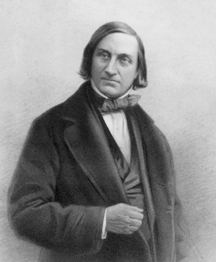A Quote by Genesis P-Orridge
If we confound and break up the proposed unfolding the world impresses upon us, we can give ourselves the space to consider what we want to be as a species.
Related Quotes
In fact, the Outer Space Treaty of 1967 bans militarization. Potential adversaries of the US, and even its allies, are so far behind that these countries are very interested in maintaining the treaty. Europe and the rest of the world want a strong reaffirmation of the Treaty and the US is unilaterally trying to derail it. Termination of the treaty would mean that the US could develop satellite weapons, put offensive weapons in space. It would probably mean using nuclear power in space. All of this leads to some very dangerous scenarios, including destruction of the species.
We give up what we want to give up and keep what in some way we still want to keep. There are payoffs for holding on to small, weak patterns. We have an excuse not to shine. We don't have to take responsibility for the world when we're spending all our time in emotional pain. We're too busy. The truth that sets us free is an embrace of the divine within us.
Immigrants to America help us with the work they do. They challenge us with new ideas, and they give us perspective. This is still the nation that more people around the world want to come to than any place else. That has to tell us something about ourselves. If around the world this is the place people want to come to so much, maybe there's more here than many of us realize-and that many of us can take advantage of.
Its [the anthropological method] power to make us understand the roots from which our civilization has sprung, that it impresses us with the relative value of all forms of culture, and thus serves as a check to an exaggerated valuation of the standpoint of our own period, which we are only too liable to consider the ultimate goal of human evolution, thus depriving ourselves of the benefits to be gained from the teachings of other cultures and hindering an objective criticism of our own work.
One should not understand this compulsion to construct concepts, species, forms, purposes, laws ('a world of identical cases') as if they enabled us to fix the real world; but as a compulsion to arrange a world for ourselves in which our existence is made possible:-we thereby create a world which is calculable, simplified, comprehensible, etc., for us.
Palaeontological research exhibits, beyond question, the phenomenon of provinces in time, as well as provinces in space. Moreover, all our knowledge of organic remains teaches us, that species have a definite existence, and a centralization in geological time as well as in geographical space, and that no species is repeated in time.
Those of us who consider ourselves to be somehow involved in the birthing of a new age, should discover Gaia as well. The idea of Gaia may facilitate the task of converting destructive human activities to constructive and cooperative behavior. It is an idea which deeply startles us, and in the process, may help us as a species to make the necessary jump to planetary awareness.
Hitler knows that he will have to break us in this island or lose the war. If we can stand up to him, all Europe may be free, and life of the world may move forward into broad, sunlit uplands. But if we fall, then the whole world, including the United States, including all that we have known and cared for, will sink into the abyss of a new Dark Age... Let us therefore brace ourselves to our duties, and so bear ourselves that, if the British Empire and its Commonwealth last for a thousand years, men will still say, 'This was their finest hour.'
Mindfulness is the primary tool in that we get a little space between ourselves and the thoughts and then we actually can be more responsive, as in: Do I want to listen to that? Do I want to ignore it? Do I want to say "no thank you". Do I want to inquire if that's really true or helpful? So we start with mindfulness and we're not engaging, because as soon as we do that, we've given the critic authority. Instead, we want to notice the critic but not give it any attention, not really give it much value.
In modern society most of us don't want to be in touch with ourselves; we want to be in touch with other things like religion, sports, politics, a book - we want to forget ourselves. Anytime we have leisure, we want to invite something else to enter us, opening ourselves to the television and telling the television to come and colonize us.



































